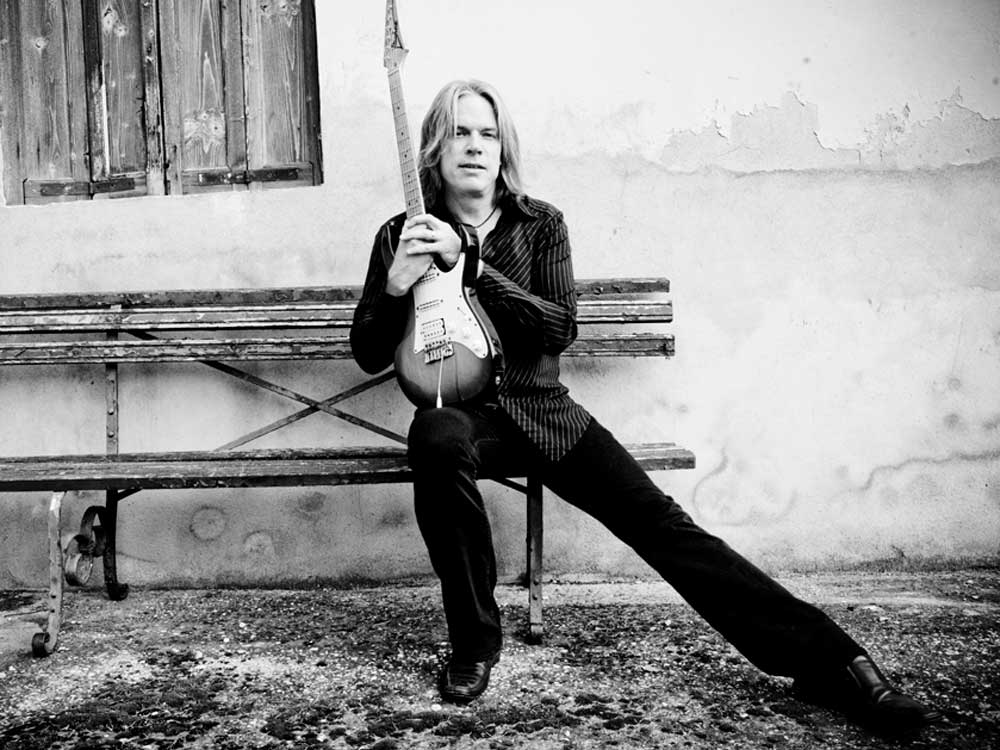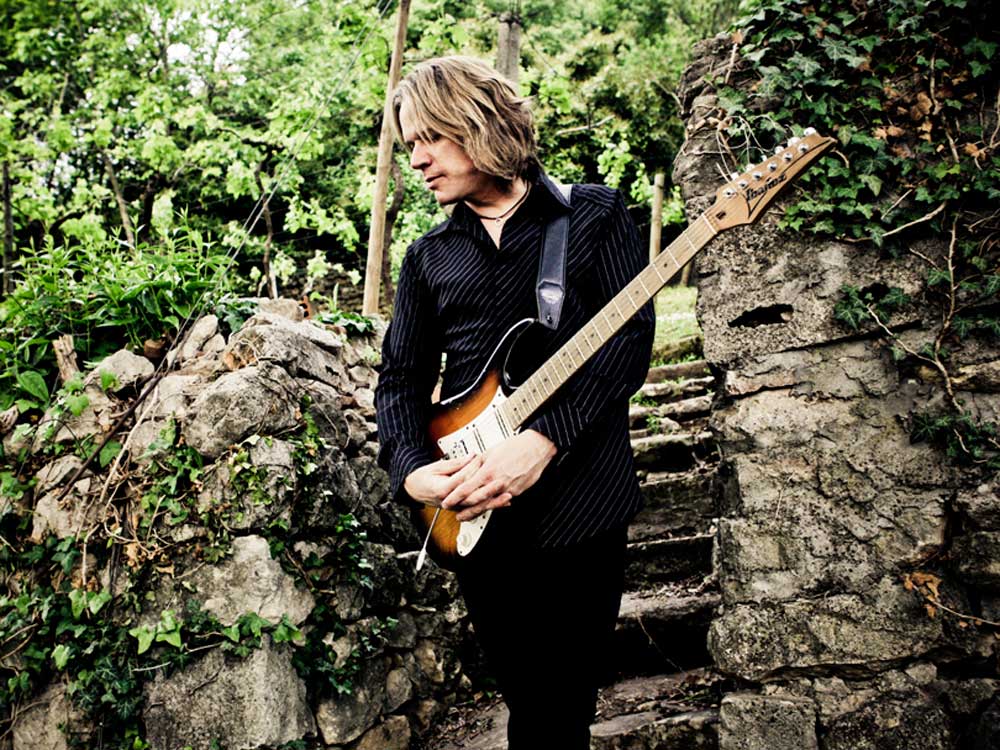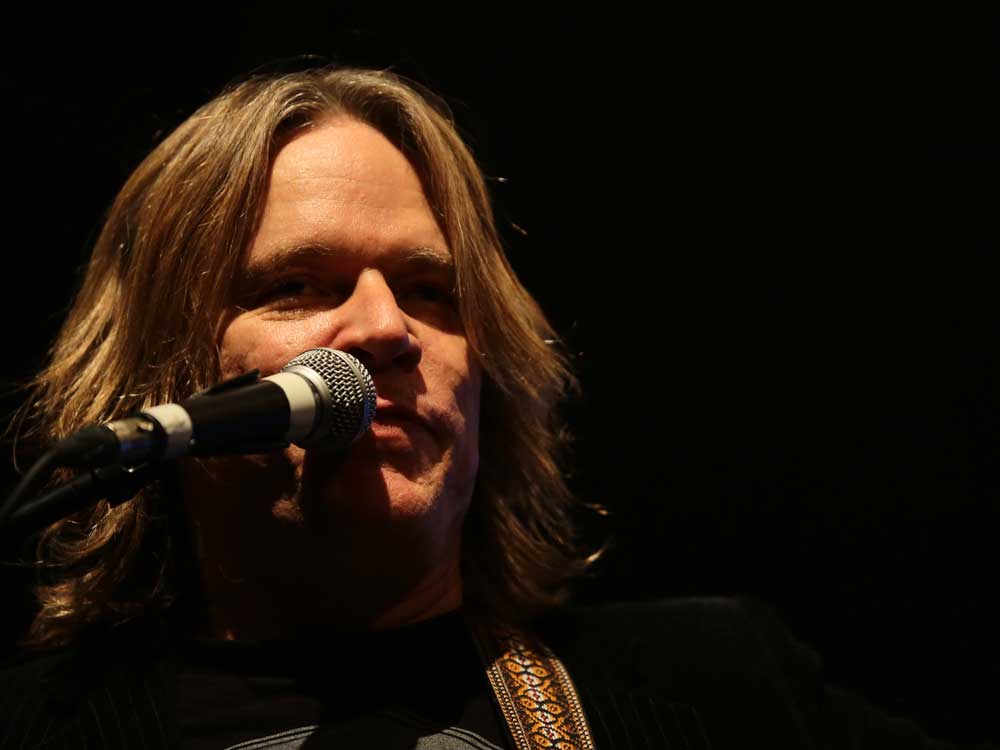Andy Timmons' top 5 tips for guitarists
The guitar virtuoso and band leader offers sound advice

Andy Timmons' top 5 tips for guitarists
“I realize that not everybody who plays the guitar is necessarily looking to be a virtuoso or even a professional musician, but I feel these tips have value no matter what your goals may be.
“That being said, I've geared these comments and pieces of advice to mirror how I approached learning and playing in my most formative years. Now, at age 51, I suppose these tips may be considered a bit "old school.” But I'm hopeful that sharing these thoughts will help you on your musical path. So go play – I'm listening.”

Play that thing!
“In this era of instant gratification, everybody seems to be looking for shortcuts for everything, including how to play great guitar. The dirty little secret is that there are no shortcuts. Great playing and great tone only come from time spent on the instrument. Lots of time.
“If you love it, you'll do it"
“If you love it, you'll do it. No one ever had to tell me to play the guitar. In fact, I couldn't wait to get my hands on it. The look of it, the sound it made – everything about the guitar attracted me. It still does. Growing up, music gave me an emotional outlet that I didn't have otherwise, and to this day I feel that I express myself better musically than verbally.
“For tips two through five, see number one. I’m kidding but not kidding. OK, here’s four more…”

Learn as much as possible by ear
“Your ear is your most valuable asset as a musician. I was self-taught from the ages of five to 16. All I had were my three older brothers (whom I learned a couple of chords from) and my record player. Eventually, I "borrowed" a Mel Bay book from a neighbor, and I tore the most important page out of it, the one with all the chord diagrams.
"Try first to dig it out yourself, and then recruit the help of your teacher, videos or transcriptions"
“The epiphany came when I was strumming a D chord as Every Picture Tells A Story was playing, and I realized that my chord matched the chord on the record. Eureka! At that moment, the connection between my ear and my instrument was forged.
“From there, it was barre chords and the album Kiss Alive. It took me a while to realize that the band was tuning down a half-step, but I'm sure you can appreciate how valuable these experiences were to my development.
"Had someone put a tab in front of me (which didn't exist at the time), I certainly could have leaned the tune, but the process would have been on a much more shallow level. I had to earn it. I had to dig it out.
“I'm not downplaying the value of the transcriptions and videos (I use them, too), but try first to dig it out yourself, and then recruit the help of your teacher, videos or transcriptions. It will stay with you a lot longer and fortify your ability to apply what you hear to your instrument.”

Find some humans to play with
“This is where the good stuff happens. I was very fortunate to have joined my first band when I was 14, and we actually stayed together for about seven years! My bandmates were all older and more experienced than I was, and I learned so much from them.
“This is where the good stuff happens"
“If you can't find a band to jam with, at least seek out a "jam buddy” – someone to hang out and play with and to share musical ideas with. It's always helpful if the other player is more advanced than you, but even if you are the more advanced player, it's still a good thing.
“This is where the art of making music with other humans develops – how to listen to what the other musicians are playing and deciding in that moment what you are going to play (or not play). Of course, spending time practicing on your own with backing tracks, your favorite records and drum machines is extremely valuable and necessary, but you should always make sure you balance your time playing with other people.”

Keep it fun
“I'm certainly guilty of taking things too seriously at times – well, OK, a lot of times. But music is meant to bring fun, joy and emotional expression into your life, not frustration.
"Take a break. Breathe. Play something that comes easily to you"
“Admittedly, when something is proving to be difficult, it can be maddening. When this happens, take a break. Breathe. Play something that comes easily to you. You can always revisit the difficult passages later. Don't let playing become a chore. That's when frustration sets in, and you'll be less likely to spend the time on your instrument that will be so important for your growth.”

Be a student for life
“How does the old saying go? ‘If you're not growing, you're dying’? This makes great sense to me, now more than ever. Essentially, I've played the guitar my entire life. That doesn't mean the inspiration to practice has always been there.
“Fortunately, my work is playing the guitar, and it’s an honor that I am thankful for and never take for granted"
"Certainly in my youth, it was a non-stop love affair, but as time went on, of course, life happened. A career, a family, you know – the day to day responsibilities that don't include practicing guitar.
“Fortunately, my work is playing the guitar, and it’s an honor that I am thankful for and never take for granted. But as I was growing over the years as a writer and player, I got away from ‘practicing,’ that is, really pushing myself to grow and learn, like when I was in school at the University of Miami studying jazz.
"Back then, I practically had the guitar in my hands every waking hour. If I wasn't in class dissecting Charlie Parker solos, I was jamming with other guitarists who lived on my dorm floor – and I was gigging in a Top 40 band six nights a week, applying all that I was learning in various musical situations.
“As you might imagine, I was happy. I was growing and learning. Then life happened. My recent epiphany came a few years ago, in the form of a week-long Pat Metheny workshop that I heard about and planned on attending. However, the thought of playing in front of Pat – whom I should point out is a big influence and hero of mine – absolutely terrified me.
“I think it's quite natural to want to play well and impress your heroes, but I realized at that time that I wasn't living up to my potential. I hadn't kept my jazz chops together, and I hadn't really practiced in years – many years. This was a great wake-up call for me. I had gotten too comfortable. I dug out the old Real Book (a collection of jazz standards) and began brushing up on the tunes I used to play. I also sought out some jam buddies to play tunes with. (Yup, I’m taking my own advice.)
“I should also point out that even though most people don't consider me a jazz guitarist, playing jazz along the way has definitely shaped the way I phrase things and hear melodies, the way I voice leads and play through chord changes. Unfortunately, I wasn’t able to attend Pat's workshop, but just the thought of playing for him made me vastly improve my playing. So, thanks Pat! I'm happier now than I've ever been. I'm still growing.”